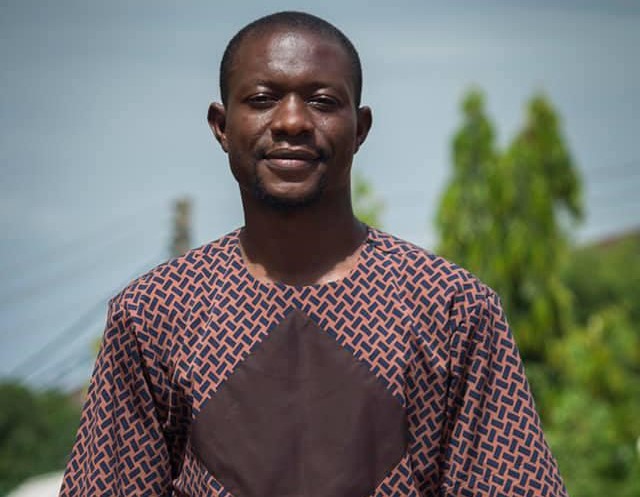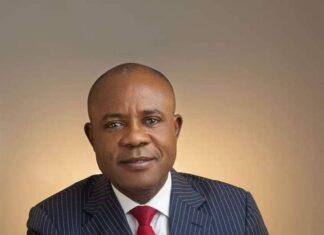By Alex Byanyiko
I remember while growing up in the early eighties; how we used to depend, largely on foreign media contents for entertainment. Our role models were Hollywood, and sometimes, Bollywood honchos. We wanted to be like them.
In fact, I now have a hunch back from imitating those characters in American gangster movies that usually put hands in their pockets, back hunched as they swagger around, after or before committing crimes. And, as teenagers, we admired the criminally-minded guys and tried to imitate their mannerism.
Such influence was not only on us, the young minds. We could see such even on our parents. Whenever our father received his salary, he would buy us some processed food, canned sardine, baked beans, and the rest of those fancy western stuff.
Rich people had such foods daily in their menus, especially those whose parents had western exposures and orientation. Ours was just about three days in a month, then we would be taken back to our regular local meals. No thanks to a civil servant’s slim pocket.
In time the word ‘local,’ which simply means belonging to a particular area or relating to a particular region or part, began to assume a repulsive connotation.
Nobody wanted to be described as local in their behaviour or appearance.
As pre-teen, in the late eighties, we enjoyed some mischief, one of which whenever we saw a lady wearing trousers, we would go after her, taunting her by chanting the song:
‘biri da wando,
mage da hula,
ashe kina nan,
ban sani ba,
baki da yo yo
kamar kubewa!’
The English translation means; Monkey in trousers. Cat putting on a hat. I didn’t know you existed. Your mouth leaks like okra!
We would keep following the lady, chanting the song till we were sure that she was thoroughly embarrassed or some elderly person came and chased us away.
We were used to seeing African or Nigerian women tying wrappers or wearing skirts. To then see a woman or a girl wearing trousers was like finding a dead fly in your palm oil.
But soon, seeing ladies wearing trousers became commonplace that it ceased to be strange anymore. It became part of our culture, our westernized identity. And, later when I grew older, I began admiring ladies in trousers. It made them look elegant and classy, while those wearing wrapper are seen as out of fashion. Needless to say that even mamas are taking to wearing trousers. And to this, I must confess, I insist that my wife too should wear trousers.
Then along came the romance with our African hair. Now I remember with nostalgia how our mothers and sisters used to have their thick, black hair braided in those various, intricate styles that portrayed African beauty, strengths and confidence.
However, things began to change with increasing number of our women attaching all manner of synthetic and human hair to theirs – ‘Brazilian’, ‘Peruvian’, ‘Malaysian,’ and most times completely hiding their own natural hair underneath.
If African hair was anything of an identity, that now has almost been completely lost. Most of our black African women now proudly wear strange hairs of different colours, textures and sizes on their heads. Most times it even serves as a status symbol. And, like it or not, the hair industry continues to grow in leaps and bounds.
The ResearchAndMarkets.com reported that, ‘the global hair wigs and extension market is estimated to reach revenues of more than $10 billion by 2023.’
You only need to go close to some of our women, and you’ll appreciate such hair more by the time you see the orange or white netlike material that is supposed to be the head scalp. Oh, how I love black women with long, silky, cascaded hair of different colours. I also love the fragrance some of them carry along when the sun moisturizes their heads.
I stumbled on Big Brother Nigeria the other time and, man, do I like some of those beautiful girls on screen. I observed that they like taking their soft drinks mixing the orange with the black. The camera only needed to take a close up shot of one of the girl’s knuckles or ankles and you would drop dead in love. If you’re a local guy like I am, you would be paralyzed at what level of superiority complex this is.
Imagine knowing a friend as a brown skinned African, and then you met her a year later or so and she was all transformed into a Caucasian! Just before someone takes me for a male chauvinist, our men too are not left out in sending our African identity on pilgrimage. Some of our young men now like to grow their hair and have them plaited. They also wear earrings.
Just walk down any street in any part of Nigeria, and your eyes shall be entertained by these young men with their trousers hanging half way down their behind. ‘No respect.’ Some of them call it. Or ‘sagging’. They wear trousers in such fashion, even if their underwear is cheap and dirty. They wear the identities of their role models.
And some of our men too like taking their soft drinks mixing the black with the orange. Theirs is the creepiest thing on the skin. It makes a man look like a confused woman.
Here comes another identity crisis that I’m also guilty of: speaking our own languages or mother tongues. My greatest regret in life is the fact that I can’t speak my own language so fluently as I speak the English language. If I think about it, it makes me feel like a lost child, like a rat that dashed into a den of a rattle snake.
While in primary school I could not speak English, but Hausa. I was always intimidated by the rich kids in our neighbourhood whose parents used mainly English to communicate with them. So, naturally, English became their default language.
Then, somehow, people who could speak English fluently were considered more intelligent or articulate than some of us who couldn’t. So, when I began learning to speak English, I was so aggressive that even when our parents spoke Gbagyi to me in Bukuru, Jos, or in our village, Gurku, I would respond in English. Most times I did that, my father would scold me or beat me up, and yet I didn’t stop. I wanted to belong in the privileged group of English speakers. After all, that’s our official language in Nigeria.
Also, you only need to tune in to any of our radio stations (TV presenters are mostly more natural in their spoken English) and you hear our presenters, even those local ones like myself who haven’t ever crossed the borders of Nigeria, struggling to speak like the Americans or British. You can just imagine how intelligent they sound, when they don’t get their pronunciations right.
When we meet at social gatherings, we become a bunch of comedians who try to outdo one another at faking our accents. Now I wonder how we have become at home with everything foreign while treating our African identity with so much disdain? How come we don’t seem to realize that the west is already familiar with their own things and they desire something different?
There is nothing wrong in learning something from other people of the world, if it makes our lives better and more meaningful. And there can be beauty in that. But as we buy into their cultures and traditions, we should also be proud to market ours to them. After all, the world is now a global village and the same way we admire somethings from other people, is the same way they admire ours.
Variety makes life a bit more interesting. But while Europeans, Americans, Asians and others carry their identity with pride and dignity, we, Africans, are fast burying our African ways and assuming every other thing but our identity.
Byanyiko is a filmmaker. He writes from Abuja













